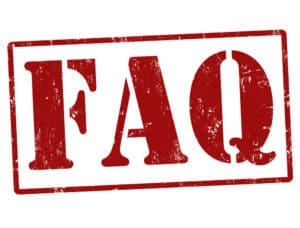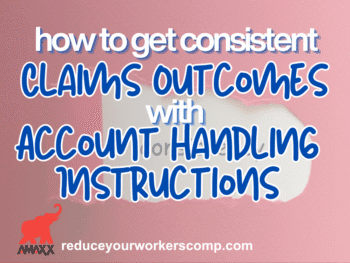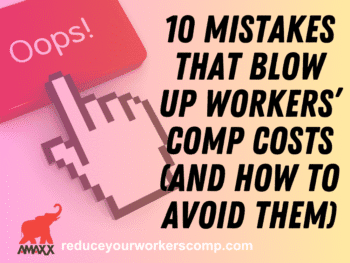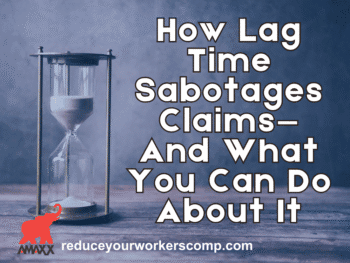
Here are some common questions claimants have when filing a work comp claim. Please note the answers to these questions can vary by jurisdiction, be sure to consult your adjuster or local legal counsel if you have questions.
Click Link to Access Free PDF Download
-
How do I get paid?
If your case is deemed compensable, you will receive a workers compensation check, probably in the mail or direct deposit, every week or two after the waiting period has subsided. This check is meant to replace your lost wages from work. It will not be 100% of the pay you are accustomed to receiving but rather a percentage of your gross wages based on whatever formula the state of jurisdiction uses.
-
When will I get paid?
Generally wages are paid after your case has been deemed compensable by the adjuster handling the file. Usually this can range from a period of a week or two to maybe a month or so. Other factors can delay payment, including the investigation of the claim and the gathering of the pertinent medical records.
-
How much will my work comp check be?
This will depend on your jurisdiction. Typically you will receive anywhere from 66% of your net pay to up to 80%, maybe even more. Fringe benefits that you receive from your employer can also affect the amount of your work comp check. Anything that you are responsible for regarding your personal medical insurance or 401k may still have to be paid by you, the injured worker. Work comp pay is not taxable income, and you will not receive a W2 for work comp wages paid out for whatever year you received benefits.
-
Can I go to my primary care physician?
This will vary by the jurisdiction, but generally the answer is yes. After a certain period of time, you can go to an appointment with your primary care doc, and usually the first one will be paid for by the insurance carrier that is handling the work comp claim. Whether or not you can continue to treat with your personal doctor is up to your adjuster, and if your personal doctor accepts work comp patients and does proper work comp billing.
-
Do I have to go to “your” doctor all the time?
Maybe, depending on the jurisdiction and if your adjuster authorizes you to treat with your physician instead of the occupational medicine doctor.
-
Why is the work comp doctor’s opinion more important or more crediblethan my doctor?
This will depend on what each doctor is saying in their medical reports. Sometimes personal physicians will say one thing with you in the exam room, and meanwhile when they dictate their notes they may mention diagnoses and findings not essentially shared with you personally. The same is true for the occupational doctor. The best way to stay the most informed is to request a copy of your medical records from both doctors, this way you can see all of the information that the adjuster is seeing, in regards to the medical chart.
-
What if I have two jobs? Do I receive lost wages for both jobs?
Usually yes, but again this will depend on the jurisdiction. You will have to provide your adjuster with a copy of your personnel file and wage records from your second employer, and be sure to tell this other employer than you sustained a work comp injury at your other job and that you may not be able to work your job during your healing period until you are fully released from medical care with no more restrictions.
-
The light duty job assigned to me pays less than my normal job. Is this legal?
Yes it is legal, but the insurance carrier will be obligated to pay you a “partial” wage. This means that they take the reduced wages you will earn and issue you a supplemental check for the difference. The amount of this check will depend on the jurisdiction the claim is in. If you have questions about how this supplemental check is determined, contact your adjuster and have them walk you through the process.
-
Why isn’t my adjuster returning my calls?
Adjusters can handle and be responsible for hundreds of files, of which you are one of. These files are all in different stages, and are of varying complexity.
Give your adjuster a day or so to have a chance to return your call. One thing an adjuster hates is someone that calls them every hour. Sadly, the squeaky wheel rarely gets the grease. Be patient, and allow your adjuster the professional courtesy to get to your claim. But, you also have to be persistent. If you have left a few messages and 3-4 days go by without a callback, you can call and ask for their supervisor. Every adjuster has an obligation to return calls to their claimants, no matter how insignificant the question may be. Failure to return calls can be considered “bad faith” on the part of the adjuster, and they or their company can incur penalties or fines if they do indeed fail to return your call within a reasonable timeframe.
FREE DOWNLOAD: “Step-By-Step Process To Master Workers’ Comp In 90 Days”
-
Should I consult an attorney?
There is no right or wrong answer to this question. The only person that can answer this question is you. If you will feel more at ease by talking to a legal professional, then by all means do so. Having a phone consultation with an attorney doesn’t mean that you are filing a lawsuit against your employer. If it makes you sleep better at night knowing you talked to an attorney, then by all means do so. Better yet, talk to a few attorneys if you have to.
Summary
These questions are normal questions every claimant will have with their work comp claim. Some people know more about the work comp system than others, but don’t take your fellow coworkers advice about what to do with your claim. Many coworkers that have a vast experience in dealing with work comp situations will not always give you the credible or correct advice. Your adjuster is the one handling your claim, and they will be there to walk you through the process.
If you feel that the adjuster did not answer your question good enough, feel free to consult an attorney. You want to make sure you are very involved in how your claim is handled. After all, being injured doesn’t mean that you do not need to know anything about how the process works and what rights you have as an injured worker.
For additional information on workers’ compensation cost containment best practices, register as a guest for our next live stream training.

Author Michael Stack, Principal, Amaxx LLC. He is an expert in workers compensation cost containment systems and helps employers reduce their work comp costs by 20% to 50%. He works as a consultant to large and mid-market clients, is co-author of Your Ultimate Guide To Mastering Workers Comp Costs, a comprehensive step-by-step manual of cost containment strategies based on hands-on field experience, and is founder of COMPClub, an exclusive member training program on workers compensation cost containment best practices.
Contact: mstack@reduceyourworkerscomp.com.
Workers’ Comp Roundup Blog: https://blog.reduceyourworkerscomp.com/
Live Stream WC Training: http://workerscompclub.com/livestreamtraining
©2017 Amaxx LLC. All rights reserved under International Copyright Law.
Do not use this information without independent verification. All state laws vary. You should consult with your insurance broker, attorney, or qualified professional.
FREE DOWNLOAD: “Step-By-Step Process To Master Workers’ Comp In 90 Days”
























